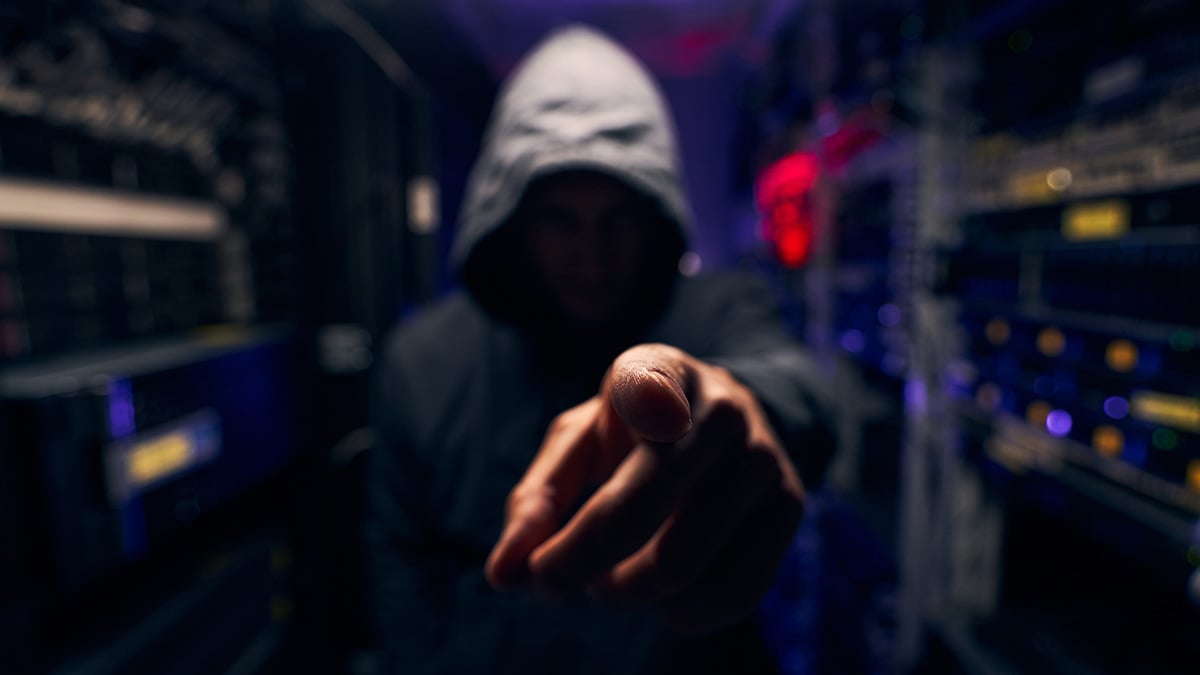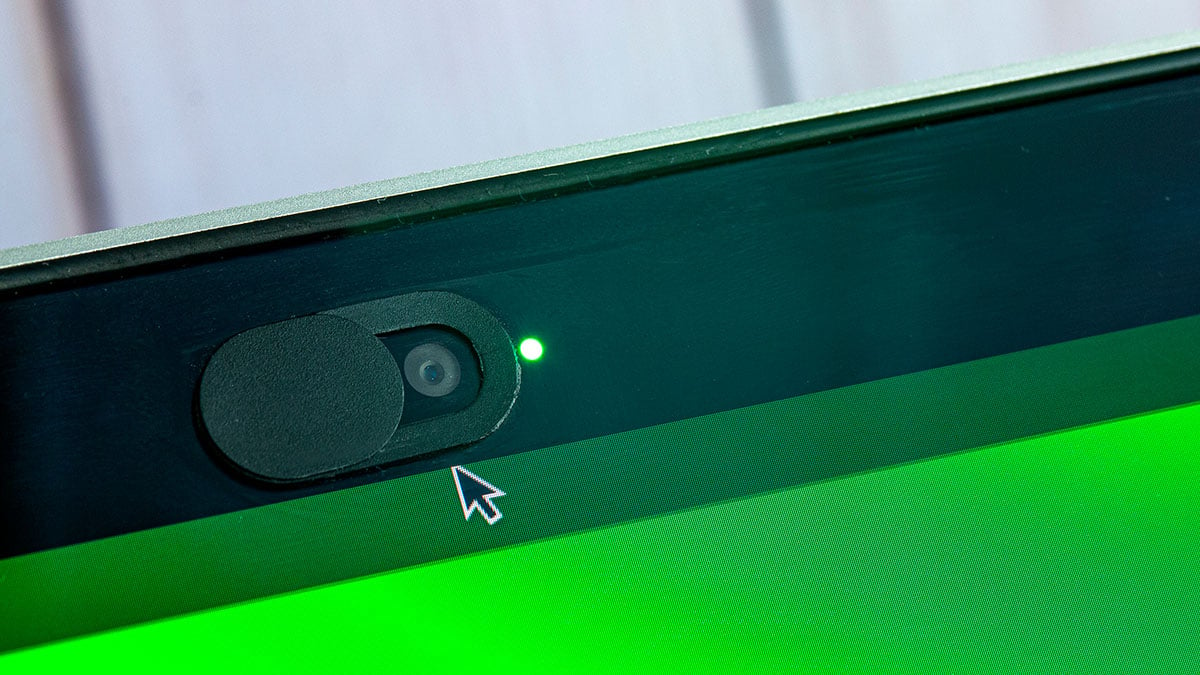
Digital privacy is quickly becoming one of the most important priorities of anyone who owns a digital device. With surveillance cameras everywhere and every single app asking for your email addresses and personal information, it’s hard to not take precautions in order to protect yourself and your information. A hacked webcam really does seem like a scenario straight out of a Black Mirror episode, with a person in a black hoodie monitoring your every move. It can happen to anyone, anywhere. But there are definite ways to pinpoint the signs that your laptop camera has been hacked, and how to take proactive steps to prevent that from happening.
Let’s start from the beginning. So how is a webcam hacked? We run through countless websites and use our computers pretty much every single day. The process of a hacker attempting to gain access to another person’s laptop camera without permission is coined “camfecting.” It can be remotely monitored, and in most cases, the hacker penetrates the victim’s computer or laptop through a virus that gives the hacker access to the victim’s camera. Webcam hackers send normal-looking and ordinary software applications for victims to download, then run the virus in the background while the normal application secures itself to the victim’s computer. Once the virus has been downloaded, it gives the hacker permission to record and capture photos.
So yes, your laptop camera can definitely “spy” on you. But in most cases, it is because a webcam hacker has installed a virus in your laptop or computer, and is using that software to capture audio or video files.
5 Ways to Check for a Hacked Webcam
- Check if the camera light is on. Whether you’re using a Chromebook or a tablet, the camera light should always be off unless you’re intentionally filming, taking a photo, or in a video call. If the laptop camera turns on (a little green indicator light) at unusual times or when you’re not using it, you may want to check your browsers or run a security check on your computer. A lot of people also purchase a laptop camera cover to protect themselves against webcam hackers. Another sign that indicates your webcam might be hacked is if your laptop camera is not working.
- Check browser extensions. As extensions like Bitwarden and Honey become more and more popular, it’s no surprise that everyone downloads them once in a while for entertainment or convenience. If your laptop camera lights up the second you open certain browsers, you should probably deactivate or disable your browsers one by one to see which extension contains a virus that might be trying to hack into your webcam.
- Check for unknown and unfamiliar applications. You might have tons of applications running in the background: Spotify to listen to music, Slack to communicate with your coworkers, or Zoom to conduct scheduled weekly calls. Check your applications folder if you suspect your pc webcam has been hacked. You might’ve unknowingly downloaded a virus or malware that took control over your computer cameras. You can also check which applications have access to your webcam by going through your system’s security and privacy settings. These processes are time-consuming, but it’s better to be safe than sorry.
- Look for alien or unfamiliar video and audio recordings. If a webcam hacking took place, there’s a possibility that the recorded videos taken from your laptop camera will be saved onto your hard drive. There might be countless videos and photos that you’ve taken by yourself, so the process might also take awhile, but there are usually designated folders for webcam recordings that automatically downloads your audio and video files. The files may have random or strange tags, or files that you might not remember taking yourself.
- Run your antivirus scan. Anyone who owns a digital device should immediately download reliable antivirus software once they start actively using it. Antivirus software specifically draws out any suspicious or malicious activities in the computer unbeknownst to the user. If it does find anything out of the ordinary, make sure to delete the files or applications.
These are some definite signs and ways to check for a hacked webcam. However, there are still possibilities in which a user has performed every single method and still got hacked. If you are still unsure, you can still search “test my webcam” to examine your laptop camera, or ask for help from a tech professional.

How do I prevent webcam hackers?
There are several ways to take proactive steps and precautions in monitoring your digital privacy. By properly educating yourself and being aware of your digital activities, you can certainly protect your privacy and your information from hackers. By understanding the foundation of digital safety, you’ll be able to use your laptop soundly without worrying about malicious attacks.
6 Steps to Protect Yourself
- Install firewall and antivirus software. As soon as you start using a new device, make sure your computer’s security settings and inbuilt firewall is running smoothly, and download reliable antivirus software. The antivirus software should detect malware, spyware, and viruses running inside your computer before they do any damage to your computer’s security system.
- Keep your computer up to date. Every so often, we forget to update our digital devices. It matters a little bit more than we all think. As computers push out newer updates, they also increase their security systems bit by bit. All these little steps may add up to protect users. So don’t forget to automatically update your laptop while you’re asleep or running errands.
- Restrict application permission to the camera. These are all steps you can do within your computer. When you install a new application or extension, remember to go into your privacy settings and turn off the application’s access to your laptop camera. This is another step you can take to ensure that your privacy is within your control.
- Don’t click on suspicious links or ads. This is a tale as old as time, but if you receive a suspicious email or link, double-check the returning address and try to verify the sender before clicking on anything that looks remotely apprehensive. For example, if the sender’s address ends in “@thecoolfacebookworker.com” instead of “@facebook.com,” you can most likely ensure the first sender’s email address is questionable.
- Stay safe on public Wi-Fi. Most of the more underrated ways to protect yourself against webcam hackers is to be safe and cautious while using public Wi-Fi. They are very vulnerable to hack into, and hackers usually try to target users who use public Wi-Fi a lot. To protect your pc, you can install a VPN on your computer to secure your Wi-Fi in public. NordVPN is one VPN you can download with military-grade encryption and increased security features.
- Purchase a laptop camera cover. One of the easiest ways to protect your webcam and privacy is to buy a laptop camera cover. It is convenient, accessible, and doable to purchase from a retailer or just from Amazon. Camera covers usually come in two or more per pack, so you’re able to use it on numerous devices if applicable.
Sometimes a hacked webcam can be hard to imagine, and harder to see it happening to yourself. While it sounds scary and a terrifying breach of privacy, people are finding new and creative ways to prevent that from happening each day. Preventing a hacked webcam is one of the many ways to protect yourself in this digital age. That Black Mirror episode everyone’s so wary about should remain as thriller entertainment, not reality.
*The opinions reflected in this article are the sole opinions of the author and do not reflect any official positions or claims by Acer Inc.

About Janice Lin: Janice is a contributing writer for Acer with a background in marketing and copywriting. She's passionate about literature, tech, blockchain, and creative trends. She has worked with several clients to grow and position their brands internationally.









